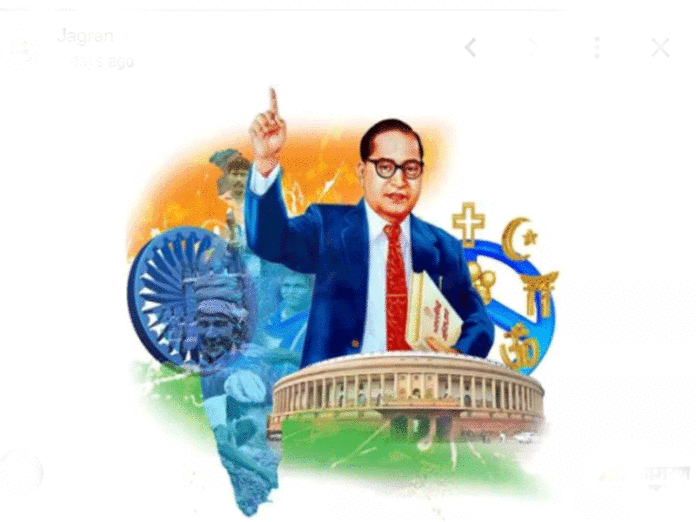Marking the birth anniversary of India’s first law minister Dr Bhimrao Ambedkar, April 14 is celebrated as Ambedkar Jayanti. Hailed as the father of Indian Constitution, it was under the chairmanship of Dr Bhimrao Ramji Ambedkar that the world’s longest written constitution was framed by the constituent assembly.
Ambedkar Jayanti is also celebrated to remember the jurist’s dedication in fighting social evils like caste discrimination and oppression. He vehemently opposed the caste system and strived to eradicate it from the society.
Dr. Bhimrao Ramji Ambedkar was born on April 14, 1891, in Mhow, Madhya Pradesh, into a Mahar family, which was considered one of the lowest castes and discriminated against in India. Despite facing discrimination since childhood, he managed to get admission to the prestigious Elphinstone High School in Bombay, becoming the only member of his caste to do so. However, he faced oppression from the upper caste teachers and staff, as he and his Dalit friends were not allowed to sit inside the classroom with other students and were not permitted to drink water from the school’s earthen pot. Nevertheless, he persevered and overcame those hurdles to pursue postgraduate studies at Columbia University. He later obtained his doctoral degree from the London School of Economics, earning two doctorates from the institution.
In addition to his prominent roles as the first law and justice minister of independent India and the chairperson of the constituent assembly’s drafting committee, Dr. Bhimrao Ramji Ambedkar also inspired movements for Dalit and Buddhist rights in India. He was a vocal advocate for social equality and campaigned against discrimination based on caste. Despite his immense contributions in framing the Constitution of India, his impact extended beyond his legislative achievements.
Dr. Bhimrao Ramji Ambedkar was a strong supporter of workers’ rights, advocating for their right to form unions and engage in collective bargaining with employers. He believed that labour was a vital component of the economy and therefore deserved to be treated with dignity and respect. Ambedkar also championed the establishment of minimum wage laws as a means of preventing worker exploitation. His advocacy for labour rights demonstrated his commitment to social justice and equality.
Dr. Bhimrao Ramji Ambedkar was a vocal supporter of gender equality and women’s rights, advocating for equal opportunities and rights for women. He believed that women should receive the same respect and dignity as men and worked to promote gender equality in all aspects of society. Ambedkar’s advocacy for women’s rights was an integral part of his broader mission to create a just and equitable society for all.
Dr. Bhimrao Ramji Ambedkar was a proponent of birth control and family planning, recognizing the importance of controlling population growth and improving the health and well-being of women. He believed that access to birth control and family planning was necessary for women to achieve greater control over their lives and to have the freedom to make choices about their own bodies. Ambedkar’s support for these issues reflected his broader commitment to social justice and equality.
Although Dr. Bhimrao Ramji Ambedkar was not directly involved with the founding of the Reserve Bank of India (RBI), he played a crucial role in its establishment by drafting the Banking Companies Act of 1949. This legislation granted the RBI greater power to regulate both commercial and public banks, ultimately helping to establish the central bank as a key player in India’s financial system. Ambedkar’s contribution to the creation of this act demonstrated his understanding of the importance of effective regulation in promoting financial stability and economic growth.


















































